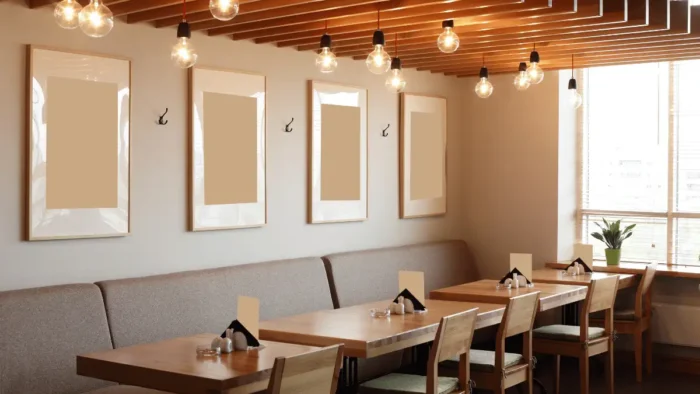If you’re a bibliophile with a passion for books and the entrepreneurial drive to turn your passion into a business, opening a used book store might be the perfect venture for you. Used bookstores offer a treasure trove of literary delights, attracting book enthusiasts and casual readers alike. In this article, we’ll discuss how to start your very own used book store.
From conducting market research and creating a business financial plan to managing inventory, we’ll walk you through the essential steps needed to create a successful and thriving business in the world of literature.
Conduct Market Research
To successfully establish your used book store, begin with thorough market research. This vital step involves recognizing your target audience, understanding their preferences, and analyzing their purchasing behavior. Moreover, actively engage potential customers, conduct surveys within local communities, and review data on book sales trends to gain valuable insights into the types of books in demand. Through this proactive approach, your business will be better equipped to cater to the literary needs of your clientele.
Create a Business Plan
After you’ve finished your market research, the following step is to draft a business plan. This carefully constructed roadmap serves as the cornerstone for your venture, outlining your store’s objectives, mission, and vision. A well-structured business plan will encompass the market analysis, target audience, competitive landscape, and marketing strategies. This will also include a detailed financial plan covering initial investment costs, expected revenue, and projected profits. By mapping out both short-term and long-term goals while considering contingency plans, your bookstore will gain a clear direction for sustained growth and development.
Choose an Ideal Location
Now that you’ve established your business plan, it’s time to identify the ideal location for your used book store. The success of your venture heavily relies on the accessibility and visibility of your store to potential customers. Seek out areas teeming with foot traffic, such as those near educational institutions, libraries, or vibrant cultural districts. A locale that exudes an allure to book lovers, avid readers, and passersby will naturally increase the likelihood of attracting more customers to your store. In addition, carefully evaluate rental or leasing costs as they directly impact your business.
Apply for the Necessary Licenses and Permits
The next step is to apply for the necessary licenses and permits, so your business can operate legally. Depending on your location and local regulations, this may include obtaining a business license, retail sales permit, or zoning permit. These crucial documents validate your business and help prevent potential legal complications down the line.
Additionally, an e-commerce permit or sales tax registration might be required if your store plans to sell books online, depending on your jurisdiction. Research the licensing prerequisites in your locality and promptly complete the required applications. Adhering to all legal obligations will not only protect your business but also establish trust with customers and foster positive relationships with local authorities.
Secure Funding
Securing funding is the next critical step in turning your dream of owning a used bookstore into a reality. With the business plan in place, you’ll clearly understand the capital required to cover startup costs, rent, inventory, marketing, and operational expenses. There are various avenues to explore for funding, including personal savings, loans from financial institutions, or seeking investors who share your passion for literature.
Choose the Right Inventory
The heart and soul of a used bookstore lie within its inventory. To attract and retain customers, curate a diverse and appealing collection of books. Offering a broad range of genres, from classic literature to contemporary fiction and non-fiction, as well as niche topics, can greatly enhance customer appeal. Source the books from various channels, such as estate sales, book fairs, auctions, and even accepting customer trade-ins. Be meticulous in evaluating the condition of the books and price them competitively.

Create an Inviting Ambience
A successful used bookstore not only houses an exceptional collection of books, but also provides a warm and inviting atmosphere. Invest time in designing a layout that encourages customers to explore and discover new titles. Enhance the overall shopping experience by providing comfortable seating areas, cozy reading nooks, and thoughtful displays. To set the mood, play soft background music while also considering hosting book-related events, such as author signings or book clubs, to foster a sense of community.
Embrace the Digital Age
In today’s digital era, an online presence, including used bookstores, is paramount for a business. Develop a user-friendly website where customers can browse your inventory, place orders, and learn more about your store and upcoming events. Utilize social media platforms to engage with your audience, share book recommendations, and announce promotions. Embracing e-commerce will broaden your reach beyond the physical storefront, attracting customers from all corners of the globe.
Implement an Effective Inventory Management
Maintaining an organized inventory is vital to the success of your used book store. Implement a robust inventory management system to keep track of incoming and outgoing books, ensuring that popular titles are always in stock. Consider categorizing books alphabetically, by genre, or through a unique system that reflects your store’s personality. Regularly review your inventory and offer discounts or promotions to sell slow-moving titles and make way for new additions.
Offer Book Appraisals and Special Services
To add value to your bookstore and cater to your customer’s needs, consider offering book appraisal services. Some customers may have valuable or rare editions that require professional evaluation. Providing this service can build trust and loyalty with your clientele. Additionally, consider offering gift-wrapping, personalized recommendations, and loyalty programs to create a unique and memorable shopping experience that will keep customers coming back.
Build Relationships with Publishers and Authors
Finally, establishing strong relationships with local publishers, authors, and literary organizations is mutually beneficial. This opens up collaboration opportunities, such as hosting book launches, organizing author events, or participating in book festivals. These partnerships can attract new customers and generate enthusiasm within the local literary community, reinforcing your store’s position as a valuable contributor.
Starting your own used book store is a rewarding endeavor that can be extremely fulfilling. By following these steps, you can create an inviting space that attracts customers and fosters a sense of community. With dedication, passion, and a commitment to excellent customer service, your used book store can become a beloved destination for book enthusiasts seeking literary treasures.





